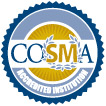Sport Management Degree
Bachelor of Science (BS)
Credits
121
Course Length
16 weeks (semester)
Delivery Method
Traditional, On-Campus at Lancaster, PA
Study Sport Management at LBC | Capital
If you’re looking for an education in sport management or a sports administration degree that’s hands on, practical and focused on giving you résumé-ready skills and experience, look no further. At Lancaster Bible College, our Sport Management degree allows students to be a part of this $400 billion industry – before they even graduate.
While many colleges offer sport management programs, none are quite like ours. With a program that is intentionally designed to give students field experience before graduating, our students leave equipped and ready to lead in their industry in sports administration, coaching or sport ministry. Plus, biblical integration is key to every course.
Starting in their freshman year, students begin working in their field, first by helping to plan and execute athletic events, followed by an apprenticeship under a skilled professional in their sophomore year, then internships and practicum in their junior and senior years. In total, our students leave with a minimum of 440 hours of relevant sport management experience. LBC firmly believes in giving our students opportunities for as much hands-on experience as possible.
Furthermore, our students integrate their faith into their profession through our unique program that places a strong emphasis on Bible classes, professional classes and coaching classes. In fact, our students graduate with two majors: Sport Management and Biblical Studies.
So if you’re looking for a Christian college that will give you an education in the Bible and beyond, consider applying to LBC to study Sport Management.
Areas of Specialization include: Coaching or Sport Ministry (camp, fitness, church ministry)
Accredited by COSMA
 The sport management degree program at LBC has received specialized accreditation through the Commission on Sport Management Accreditation (COSMA).
The sport management degree program at LBC has received specialized accreditation through the Commission on Sport Management Accreditation (COSMA).
View our COSMA student learning outcomes (pdf).
Program Cost & Financial Aid
Admissions Process
Where LBC Students Have Interned
- Intern at Cal Ripken’s Baseball Clinic
- Intern at Spooky Nook (Largest Indoor Recreational Complex in North America)
- Intern at YMCA
Can I Transfer Credits?
Yes! Read about LBC’s transfer policy
Other Program Selections
Associates of Science (AS) – 61 credits
Minor – 15 credits
See bottom of this page for more information
Sport Management Program Scope
Bachelor of Science (BS) (121 Credits)
LBC Foundation Studies Courses 4 Credits
Bible & Theology Core Courses 30 Credits
Arts & Sciences Core Courses 31 Credits
Major Courses 44 Credits
Exploration Studies Courses 12 Credits
View the Academic Catalog for the complete curriculum plan, course descriptions and program details.
What makes this LBC Sport Management program unique?
This major prepares you for careers in professional sports, college athletics, amateur sports, youth sports or a sports-related position with corporation or sports ministry. You will leave with a variety of practical hands-on experience and professional skills to organize, administrate and facilitate sports programs at corporate, agency, professional and amateur levels. You will also be able to receive national certifications in coaching, first aid and CPR.
Field Service/Internships. Students receive field service experience each year they are enrolled at LBC. These field service opportunities are key to the students’ educational experience as it is where they put into practice what they have learned in the classroom. Internships may include working with professional sports organizations, college and high school athletic departments, recreational departments, churches and sport ministry organizations that focus on areas such as facility management, sport promotion and marketing, sport media, customer or community relations, sport sponsorship, licensing, sport information and coaching.
What are the career paths with a Sport Management bachelor's degree?
The Sport Management bachelor’s degree prepares students for a wide range of technical and/or ministry contexts. Here is a sampling of careers and opportunities this degree affords:
- Athletic Director
- College Coach
- League Manager
- Sports Coach
- Sports Administration
- Staff for Professional Sports Team
Sport Management Program Goals – In this program, students will…
- Plan, create and implement a comprehensive sport program for private and public sectors utilizing biblical principles of stewardship and discipleship.
- Demonstrate and apply knowledge of the fundamental principles of sport management.
- Distinguish individual differences and describe all dimensions of diversity.
- Apply critical, analytical and creative thinking skills to solve problems through the integration of management theories.
- Develop the communication skills necessary to disseminate information in a variety of oral, written and electronic formats.
- Interpret regulations and legal aspects relative to the sport profession.
Core Courses in the Sport Management Program
SPM 105 Introduction to Sport Management
SPM 130 Sport Communication
SPM 315 Administration of Sport
SPM 320 Organizational Leadership
SPM 420 Sport Finance
SPM 470 Sport Law & Ethics
SPM 270 Sport Marketing
SPM 390 Sport Governance
SPM 475 Facility & Event Management
SPM Major Electives [2]
SPM 275 Apprenticeship
SPM 175 Field Exploration
SPM 355 Internship
SPM 450 Practicum
THE 306 Theology of Competition and Sport
SPM 400 Cross Cultural Experience
SPM 100 Sport Management Seminar (8 semesters)
Other Sport Management Program Options
Associates Degree in Sport Management Program Plan
| Credits | |
| LBC Foundation Studies Courses | 4 |
| Bible & Theology Core Courses | 15 |
| Arts & Sciences Core Courses | 15 |
| Major Courses | 21 |
| Exploration Studies Courses | 6 |
| Total | 61 |
View the Academic Catalog for the complete curriculum plan, course descriptions and program details.
Minoring in the Program
These are the required courses for a minor in Sport Management (15 credits)
- SPM 105 Introduction to Sport Management (3)
- SPM 140 Fundamentals of Coaching (3)
- SPM SPM Major Elective (3)
- SOC 412 Sociology of Sport (3)
- SOC 305 Sport Psychology (3)
View the Academic Catalog for details.
